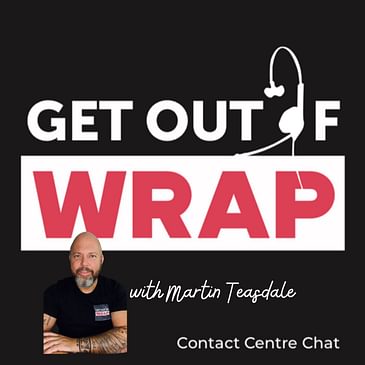Part 2 - Sandra Thompson on Emotional Intelligence.
A great episode to see in 5 years of Get Out of Wrap and Sandra demonstrates her own EI by getting me a cake !
In this episode Sandra shares more great tips on deploying Emotional Intelligence in the workplace - a must listen - not just for leaders but for everyone.

